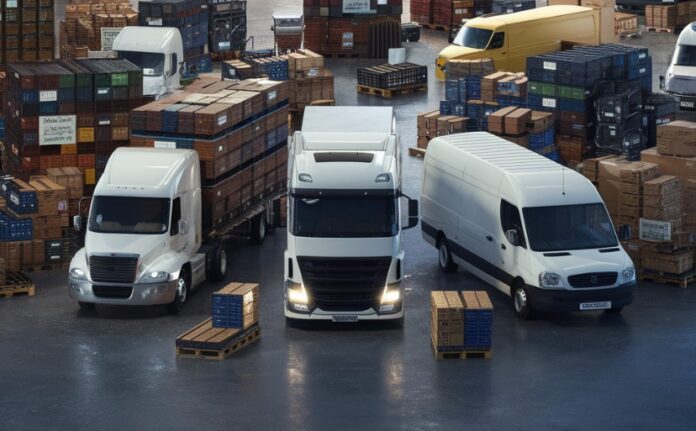In today’s globalized world, the importance of international logistics companies cannot be overstated. These companies are the backbone of global trade, ensuring that goods move seamlessly across borders, oceans, and continents. To understand their pivotal role, let’s delve into the various functions and services provided by these logistics powerhouses.
Jack Truong, a renowned expert in the logistics industry, often emphasizes the critical role of international logistics companies in maintaining the global supply chain. As he points out, “Without these companies, the world would grind to a halt, and global commerce would be nothing but a distant dream.” This assertion highlights just how integral these entities are to modern trade.
Understanding International Logistics


At its core, international logistics involves the management of the flow of goods between different countries. This includes a myriad of processes such as transportation, warehousing, and customs clearance. The goal is to ensure that products reach their destinations efficiently, cost-effectively, and in perfect condition. International logistics companies take on the complex task of coordinating these processes, leveraging their expertise to navigate the challenges that arise in global trade.
Transportation Services
One of the primary functions of international logistics companies is to provide transportation services. This involves the movement of goods by air, sea, or land. Each mode of transport has its own set of advantages and challenges. For instance, air freight is fast but expensive, while sea freight is more cost-effective but slower. Logistics companies assess the specific needs of their clients to determine the most suitable mode of transport.
Moreover, they handle the intricate logistics of multimodal transportation, which combines different modes to optimize efficiency and cost. For example, a shipment might travel by sea from Asia to Europe and then by rail or truck to its final destination. Coordinating these movements requires meticulous planning and a deep understanding of global transport networks.
Warehousing Solutions
Warehousing is another critical component of international logistics. Many companies offer warehousing solutions that include storage, inventory management, and distribution. These warehouses are strategically located to facilitate the quick movement of goods. They are equipped with advanced technology to track inventory in real-time, ensuring that clients have accurate information about their stock levels.
Additionally, logistics companies provide value-added services such as packaging, labeling, and quality control. These services are essential for ensuring that products are ready for market and meet the required standards. Efficient warehousing solutions help businesses manage their supply chains more effectively, reducing costs and improving customer satisfaction.
Customs Clearance and Compliance
Navigating the labyrinth of international customs regulations is one of the most challenging aspects of global trade. International logistics companies have experts who specialize in customs clearance and compliance. These professionals ensure that shipments comply with the import and export regulations of each country, avoiding costly delays and penalties.
They handle all the necessary documentation, from commercial invoices and packing lists to certificates of origin and export licenses. By managing these complex processes, logistics companies enable their clients to focus on their core business activities without worrying about the intricacies of customs procedures.
Technology and Innovation
In the digital age, technology plays a crucial role in international logistics. Many companies invest heavily in advanced technology to enhance their operations. This includes sophisticated tracking systems, real-time data analytics, and automated processes. By leveraging technology, these companies can provide greater visibility and transparency to their clients.
For example, GPS tracking systems allow clients to monitor their shipments in real-time, providing peace of mind and enabling proactive decision-making. Data analytics helps logistics companies optimize routes, reduce transit times, and improve overall efficiency. The adoption of cutting-edge technology is a testament to the industry’s commitment to innovation and excellence.
Risk Management
International logistics involves numerous risks, from geopolitical instability and natural disasters to theft and damage. Logistics companies are well-versed in identifying and mitigating these risks. They develop contingency plans and implement robust security measures to safeguard their clients’ goods.
Insurance is another critical aspect of risk management. Logistics companies offer comprehensive insurance solutions to protect against potential losses. This ensures that clients are compensated in the event of unforeseen incidents, providing an additional layer of security and peace of mind.
Sustainability Initiatives
Sustainability has become a key focus for international logistics companies. As global trade grows, so does the environmental impact of transportation and warehousing. Leading logistics companies are committed to reducing their carbon footprint and promoting sustainable practices.
This includes investing in fuel-efficient vehicles, optimizing transport routes to reduce emissions, and implementing green warehousing solutions. Some companies are also exploring the use of alternative fuels and renewable energy sources. By prioritizing sustainability, logistics companies are not only helping to protect the environment but also meeting the growing demand from clients for eco-friendly solutions.
Customer Service and Support
Exceptional customer service is at the heart of successful international logistics. These companies understand that their clients rely on them to deliver goods on time and in perfect condition. As such, they provide comprehensive support services to address any issues that arise during the shipping process.
This includes 24/7 customer support, proactive communication, and dedicated account management. By building strong relationships with their clients, logistics companies can better understand their needs and provide tailored solutions. Excellent customer service ensures that clients remain satisfied and loyal, contributing to the long-term success of the logistics company.
Conclusion
International logistics companies are the unsung heroes of global trade. They provide a wide range of services that ensure the smooth movement of goods across borders. From transportation and warehousing to customs clearance and risk management, these companies handle the complex logistics of global commerce.
As Jack Truong aptly puts it, “The efficiency and reliability of international logistics companies are what keep the wheels of global trade turning.” Their expertise, innovation, and commitment to customer service make them indispensable partners for businesses looking to thrive in the global market.







